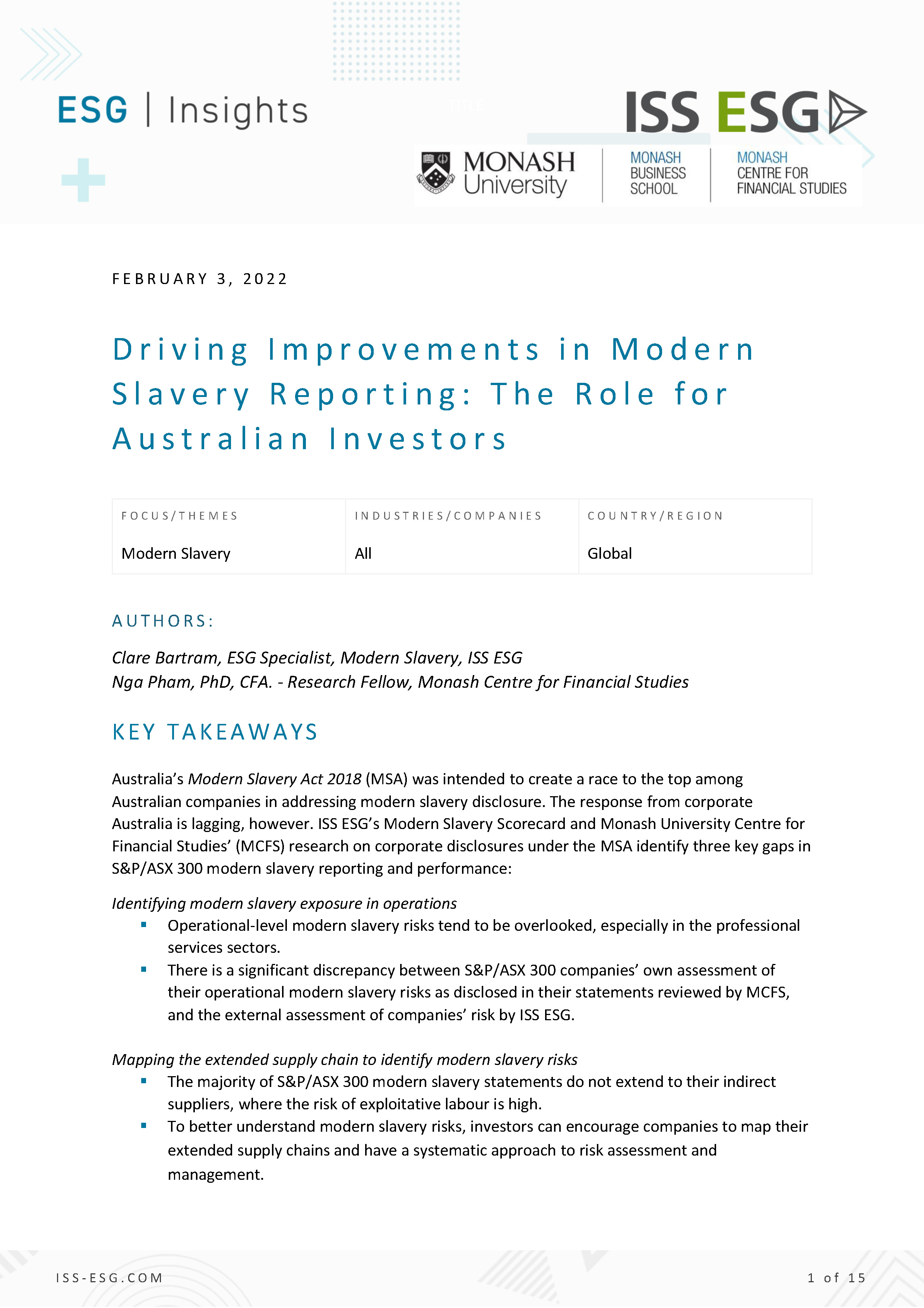
Driving Improvements in Modern Slavery Reporting: The Role for Australian Investors
FEBRUARY 4, 2022
KEY TAKEAWAYS
Australia’s Modern Slavery Act 2018 (MSA) was intended to create a race to the top among Australian companies in addressing modern slavery disclosure. The response from corporate Australia is lagging, however. ISS ESG’s Modern Slavery Scorecard and Monash University Centre for Financial Studies’ (MCFS) research on corporate disclosures under the MSA identify three key gaps in S&P/ASX 300 modern slavery reporting and performance:
Identifying modern slavery exposure in operations
- Operational-level modern slavery risks tend to be overlooked, especially in the professional services sectors.
- There is a significant discrepancy between S&P/ASX 300 companies’ own assessment of their operational modern slavery risks as disclosed in their statements reviewed by MCFS, and the external assessment of companies’ risk by ISS
Mapping the extended supply chain to identify modern slavery risks
- The majority of S&P/ASX 300 modern slavery statements do not extend to their indirect suppliers, where the risk of exploitative labour is high.
- To better understand modern slavery risks, investors can encourage companies to map their extended supply chains and have a systematic approach to risk assessment and management.
Providing and enabling remedy
- Examples of remediation of modern slavery controversies are scarce. Credible measures have been adopted in only 4% of cases assessed by ISS ESG.
- Just over half (51%) of S&P/ASX 300 companies describe remediation processes in their modern slavery statements, and these tend to prioritise whistle-blower policies over mechanisms that address the root cause of exploitative labour.



